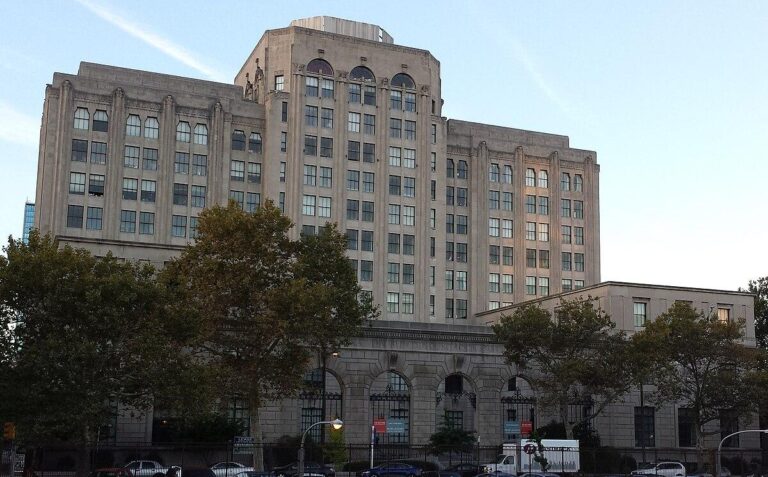Philadelphia School District Launches In-Depth Facilities Review Amid Community Concerns
The Philadelphia School District has initiated a thorough facilities assessment following widespread objections from school principals worried about possible school shutdowns. This decision arises as the district grapples with budgetary pressures and deteriorating school buildings, sparking anxiety among families and educators about the future of neighborhood schools. The comprehensive study is designed to deliver critical data that will guide future decisions on school consolidations and resource distribution, marking a pivotal moment for public education in Philadelphia.
Board of Education Endorses Extensive Facilities Analysis After Principal Opposition
In a unanimous vote, the Philadelphia Board of Education approved a detailed facilities study in response to mounting concerns voiced by school principals. These concerns surfaced amid rumors of potential closures aimed at mitigating budget deficits and addressing declining student enrollment. Principals have actively participated in board meetings, demanding transparency and evidence-based approaches to any forthcoming decisions affecting school infrastructure.
The study will assess all district properties, focusing on:
- Student enrollment patterns and their influence on space usage
- Deferred maintenance and projected repair costs
- Equity across diverse neighborhoods to ensure fair resource allocation
- Opportunities for modernization and adaptive reuse of existing facilities
| Study Element | Objective |
|---|---|
| Space Utilization Review | Detect underutilized buildings and overcrowded schools |
| Facility Condition Evaluation | Assess safety and structural integrity |
| Community Impact Analysis | Understand demographic changes and neighborhood needs |
District leaders have assured the public that no decisions regarding closures or mergers will be made until the study is complete, emphasizing a commitment to inclusive dialogue and collaborative problem-solving. The results are anticipated within six months, setting the foundation for informed discussions among all stakeholders.
Community Advocates Call for Openness and Stakeholder Engagement in School Closure Deliberations
Local leaders, educators, and parents have expressed deep concerns about the newly approved facilities study, fearing it may lead to the closure of schools in already vulnerable communities. Central to their demands is a call for full transparency and active participation of all affected parties throughout the decision-making process. They stress that any consideration of closures must weigh not only financial and infrastructural factors but also the broader social and emotional impacts on students and neighborhoods.
Key community recommendations include:
- Frequent public meetings to share updates and gather feedback;
- Open access to data on enrollment, academic performance, and facility status;
- Direct involvement of families, educators, and staff most impacted;
- Exploration of alternatives such as shared resources or partnerships with local organizations.
| Community Concern | Suggested Action |
|---|---|
| Lack of Timely Notification | Provide advance alerts through diverse communication platforms |
| Limited Data Access | Ensure transparency by sharing all relevant study information |
| Student Well-being | Incorporate mental health resources and transition support |
| Economic Consequences | Analyze potential effects on local economies and employment |
Specialists Advocate for Strategic Infrastructure Investments to Preserve Schools
Urban planners and education specialists emphasize that Philadelphia’s aging school facilities require focused investment, but caution that such funding should not lead to school closures or staff layoffs. They recommend prioritizing essential upgrades—such as HVAC system overhauls, electrical rewiring, and structural repairs—to enhance safety and learning conditions without disrupting school operations. This approach aligns with community calls to protect schools in under-resourced areas from closure.
To illustrate funding priorities, experts developed a cost-benefit framework highlighting urgent facility needs alongside their impact on students and closure risks:
| Upgrade Type | Projected Cost | Benefit to Students | Risk of Closure |
|---|---|---|---|
| HVAC System Modernization | $15 million | High | Low |
| Roof Replacement | $8 million | Moderate | Low |
| Electrical Infrastructure Upgrade | $12 million | High | Minimal |
| Window Replacement | $5 million | Moderate | None |
Experts and community members alike urge the district to allocate resources judiciously, focusing on projects that sustain school accessibility and foster safe, healthy learning environments. Such targeted investments could reduce the likelihood of disruptive closures while promoting educational equity and long-term success.
Advocates Stress Student-Centered Approach Amid Budget and Facilities Challenges
As the district embarks on this critical facilities review, advocates and school leaders insist that student needs remain the foremost priority. With financial constraints looming, they caution against decisions driven solely by economic or structural factors. Instead, they call for preserving equitable access to quality education and support services that directly influence student achievement and well-being.
Highlighted priorities include:
- Ensuring safe, nurturing environments that support academic growth and emotional health;
- Minimizing disruption to students’ social and academic networks, which are vital for development;
- Maintaining transparency and ongoing community engagement throughout the review and decision-making phases.
| Focus Area | Recommended Emphasis |
|---|---|
| Student Experience | Prioritize continuity and reduce interruptions |
| Facility Management | Enhance safety and optimize resource use |
| Community Engagement | Involve families and educators early and consistently |
Looking Ahead: Navigating Philadelphia’s Educational Future
The Philadelphia Board of Education’s decision to proceed with a comprehensive facilities study represents a crucial juncture in the ongoing dialogue about the city’s public schools. Despite strong opposition from principals and community advocates concerned about the ramifications of closures, the study promises to deliver essential insights that will shape future policies. As stakeholders await the report’s findings, the conversation continues around balancing fiscal responsibility with the imperative to provide equitable, high-quality education in Philadelphia’s diverse urban landscape.








